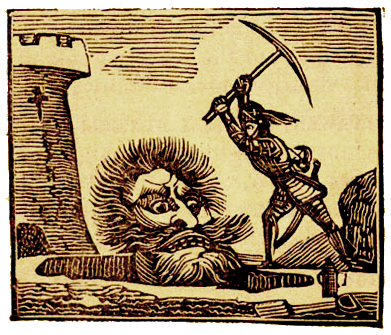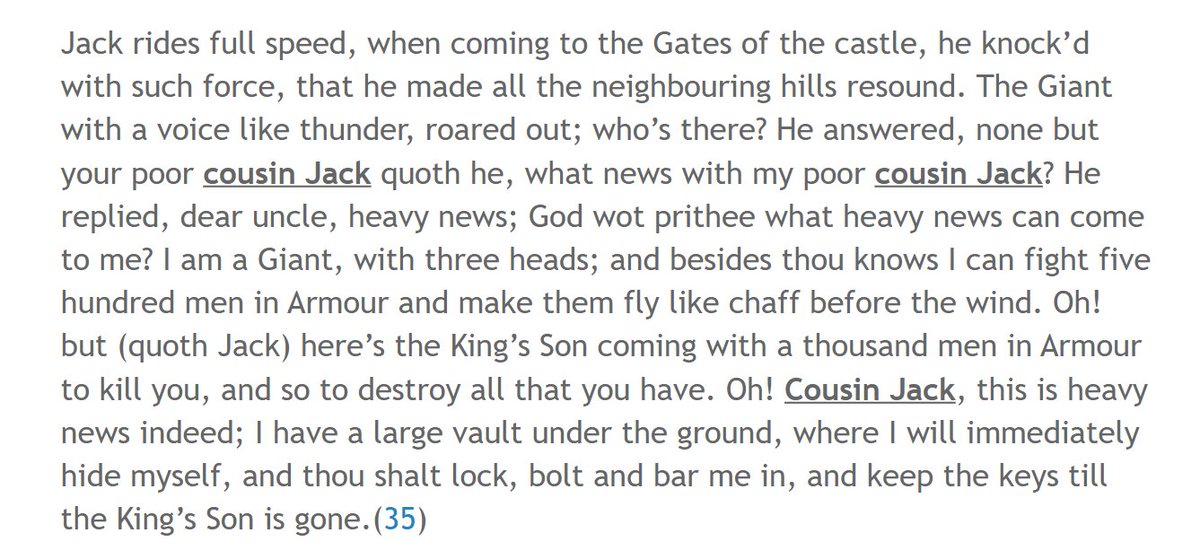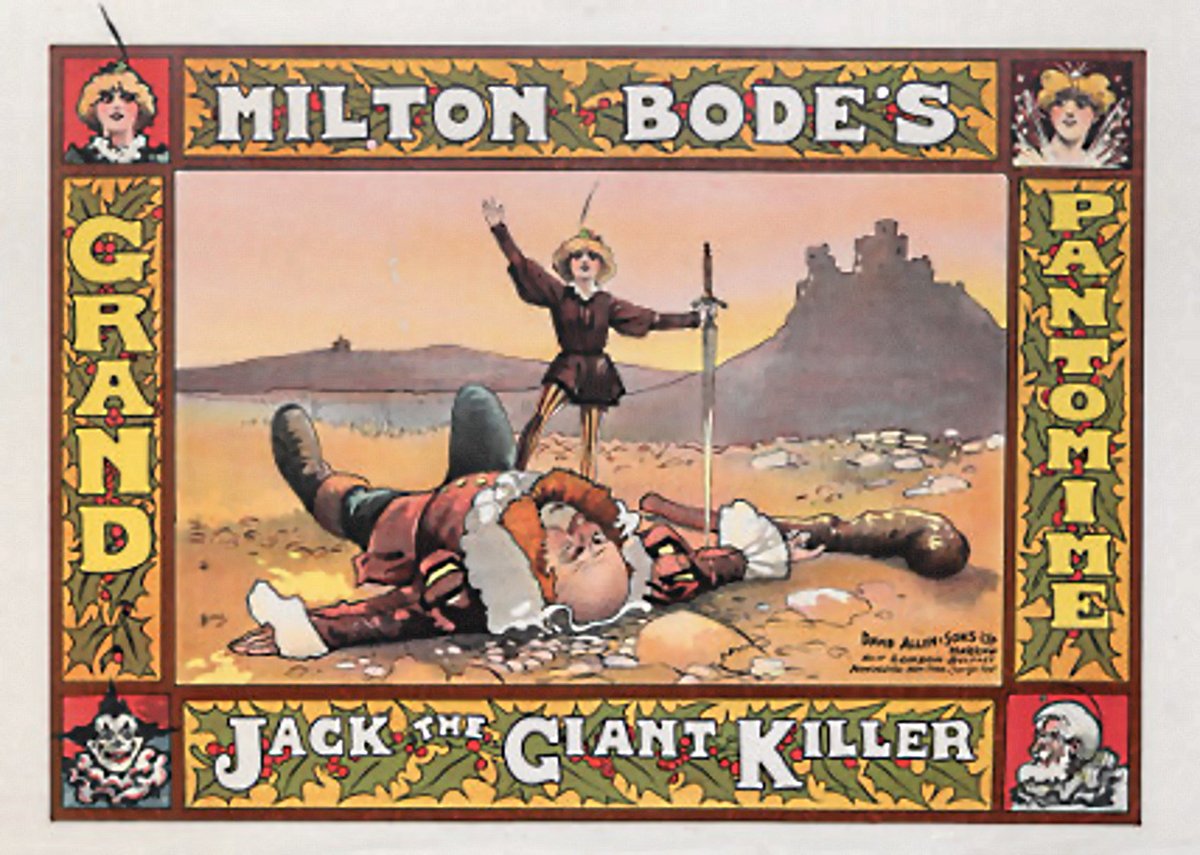Why 'Cousin Jack?' The origins of the nickname of the Cornish overseas — a new post by me :) https://www.caitlingreen.org/2021/01/cousin-jack-origins.html
Cousin Jack Town, New Zealand, c. 1910: https://www.flickr.com/photos/nationallibrarynz_commons/21314935269 'Cousin Jack' as a nickname for the Cornish is often thought to have come from Cornish emigrant miners in 19thC Australia/America etc who would claim they had a Cornish 'Cousin Jack' who could fill any open job…
The 'English Dialect Dictionary' and the OED seem to consider 'Cousin Jack' to be of Australian origin, whilst The Cornubian & Redruth Times in 1908 thought it was first used in the mid-19thC California mines, spreading out from there, & was unknown in Cornwall before the 1890s…
However, this doesn't seem to be true. Instead, the term 'Cousin Jack'/'Cousin Jacky' was known in both England & overseas in the mid-19th century e.g. this collection of poems by a Cornish author published in the late 1850s/1860 included several on 'Cousin Jack'...
Couch's 'East Cornwall Words' (1880) treats 'Cousin Jacky' as an East Cornwall term for a miner from West Cornwall… Couch, who was born 1826 nr Fowey, may be recounting a usage from his youth, & is clearly referring to someone from West Cornwall, not a Cornish emigrant overseas.
Likewise, in a letter printed in the West Briton and Cornwall Advertiser for 28 March 1862, Christopher Childs of Liskeard uses 'Cousin Jacky' in passing as a seemingly well-known, common and friendly term traditionally used between Cornish miners in Cornwall...
A 'Cousin Jack'/'Cousin Jacky' also occurs as the main character in 'A Cornish Ghost Story', by Georgina Verrall writing as "Elfin". Only the second edition survives, which was printed at Lemon Street, Truro, in 1862, priced 3d.
One foggy night, a year ago
Ere yet had fallen December's snow,
A Cornish miner half afraid,
Stroll'd down Tremaine to meet his maid…
Poor Cousin Jack felt ill at ease,
And totter'd on with trembling knees,
In short, dear reader, you may see,
Jack had his failings,—so have we…
Ere yet had fallen December's snow,
A Cornish miner half afraid,
Stroll'd down Tremaine to meet his maid…
Poor Cousin Jack felt ill at ease,
And totter'd on with trembling knees,
In short, dear reader, you may see,
Jack had his failings,—so have we…
Now cousin Jacky was, no doubt,
A comely youth when "oal trick'd out;"
To use his own expression, he
A "clain-off man" was said to be,
And many a maiden inly sighed
To be the handsome miner's bride...
A comely youth when "oal trick'd out;"
To use his own expression, he
A "clain-off man" was said to be,
And many a maiden inly sighed
To be the handsome miner's bride...
The Cornish Telegraph & Royal Cornwall Gazette in 1854 provide one of the earliest uses. They reported the exhumation of a miner who fell down the shaft of Pednandrea Mine, Redruth in the 1820s, and who had been nicknamed 'Cousin Jack Cobbler'...
Interestingly, there is a sense in some earlier West Cornwall sources that 'Cousin Jack' was considered somehow insulting, carrying a mocking meaning/implication of a 'fool'. This is confirmed in the 'Cousin Jack' poems of 'The Cornish Thalia' (published Devonport c.1859/60)...
E.g. Cousin Jack is confused by a bar of soap & basin of water, taking it for broth+potatoes:
'I lapp'd it in a moment like a cat…
I dedden mind for spoons, or sives [=herbs], or bread;
I liked your brath oncommon well I ded…
[but] I cudden bear the tetties[=soap], no my dear!'
'I lapp'd it in a moment like a cat…
I dedden mind for spoons, or sives [=herbs], or bread;
I liked your brath oncommon well I ded…
[but] I cudden bear the tetties[=soap], no my dear!'
Needless to say, the poem is rather mean-spirited, but the same sense of 'Cousin Jacky' as a name for both a miner & a fool seems to underlie the following on a mine captain from T. R. Higham's 'A Dialogue Between Tom Thomas and Bill Bilkey, Two Cornish Miners' (Truro 1866):
Another Cornish dialogue of T. R. Higham's, entitled 'The Billy Goat and the Pepper Mine', published in Truro prior to 1870, makes it clear that 'Cousin Jacky' was moreover considered to be a word used by people in England of Cornish miners in Cornwall...
So, where does this leave us? Certainly, the Cornubian and Redruth Times's 1908 claim that 'Cousin Jack'/'Jacky' was unknown in Cornwall before the 1890s doesn't hold water. Furthermore, I'm sceptical of the claim that the nickname originated overseas with Cornish miners >
> claiming they had a cousin named Jack who could fill any open role in the Australian etc mines. Not only does it have the feel of a 'folk-etymology', but the evidence suggests that the nickname for Cornish miners was in use in England at least as early, if not earlier, than >
> it was in Australia/California etc. Plus, even if it was, this still leaves open the question of why *Jack* and not some other name... There is no sense that 'Jack' is a specifically or typically Cornish name, being rather a common English personal name (a by-name for John), >
> despite occasional claims to the contrary.
For my money, the most credible explanation is that the nickname 'Cousin Jack' actually had its roots in England, not overseas, perhaps being used originally of Cornish miners from West Cornwall working in Devon and/or East Cornwall >
For my money, the most credible explanation is that the nickname 'Cousin Jack' actually had its roots in England, not overseas, perhaps being used originally of Cornish miners from West Cornwall working in Devon and/or East Cornwall >
> in the 18th and early 19th centuries. This was perhaps initially used of them by people outside of these communities who felt threatened by them and/or were mocking them, before being adopted as a badge of ethnic identity and pride by the Cornish at home and overseas, who >
> using it to sign letters from the mid-19thC... As Sharron Schwartz notes, “Cousin Jack” was 'used to express an “otherness”', w/ the Cornish overseas esp leveraging it to promote a claimed identity as a 'distinct people with specific mining skills that they jealously guarded'.
What, though, of the question 'why Jack'? Why were the Cornish miners given this nickname in, perhaps, 18th/E19thC Britain? The answer may lie with the most famous Cornish hero of that era, Jack the Giant Killer, whose tale was first mentioned in 1708...
Jack grew up in West Cornwall, achieved fame through the excavation of the Earth (digging a hole which the giant of St Michael's Mount, Cormilan, could fall into and be finished off with a pick-axe), travelled overseas—to Wales—to pursue his calling, and was, whilst there, >
This tale was *incredibly* popular in the 18th/19th centuries. It was adapted variously and frequently as, for example, a farce, a ‘musical entertainment’, a ballet, a 'burlesque extravaganza', and multiple times as a 'favourite Serio-Comic Pantomime' and similar.
It also became a very popular nursery/children's tale, issued w/ lurid pictures or in collections w/ Jack & the Beanstalk (prob a variant of Jack the Giant-Killer), Sleeping Beauty & Little Red Riding Hood. As The Illustrated London News opined in 1848, Jack the Giant-Killer was:
In other words, the immensely popular 18th/19th-century fictional Cornish hero Jack, aka 'Cousin Jack', would clearly be a natural reference point for anyone encountering a person from West Cornwall. In such circumstances, it seems quite credible that the widespread knowledge >
> of Jack's adventures might have led to people from West Cornwall, esp those who dug holes(!), being jokingly—perhaps mockingly—nicknamed Cousin Jack after him, w/ the nickname being subsequently reclaimed as a badge of identity & pride by the Cornish, esp those living overseas.

 Read on Twitter
Read on Twitter
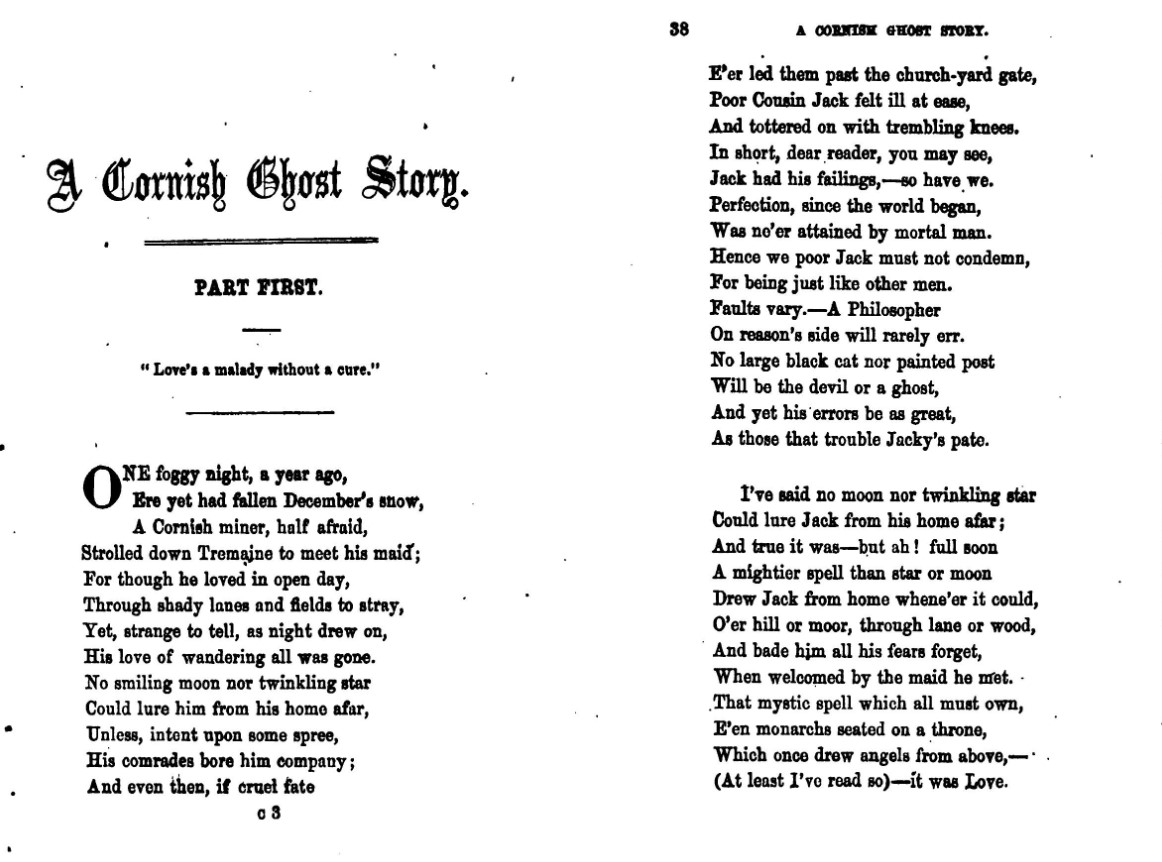
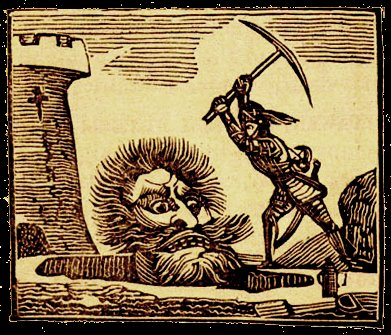
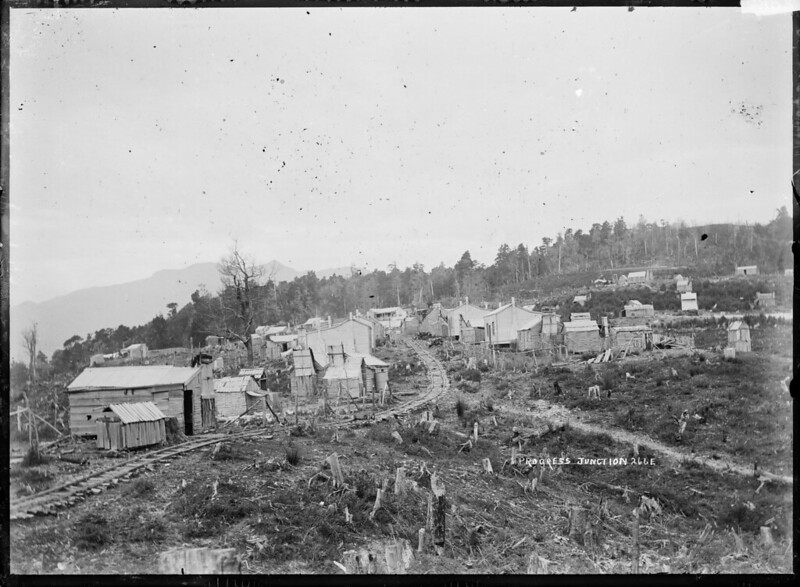
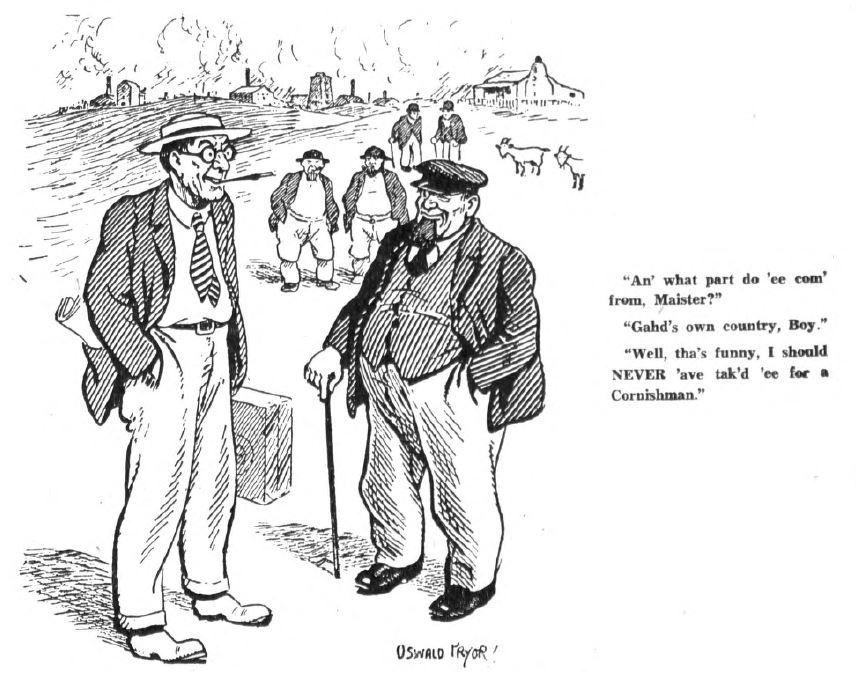



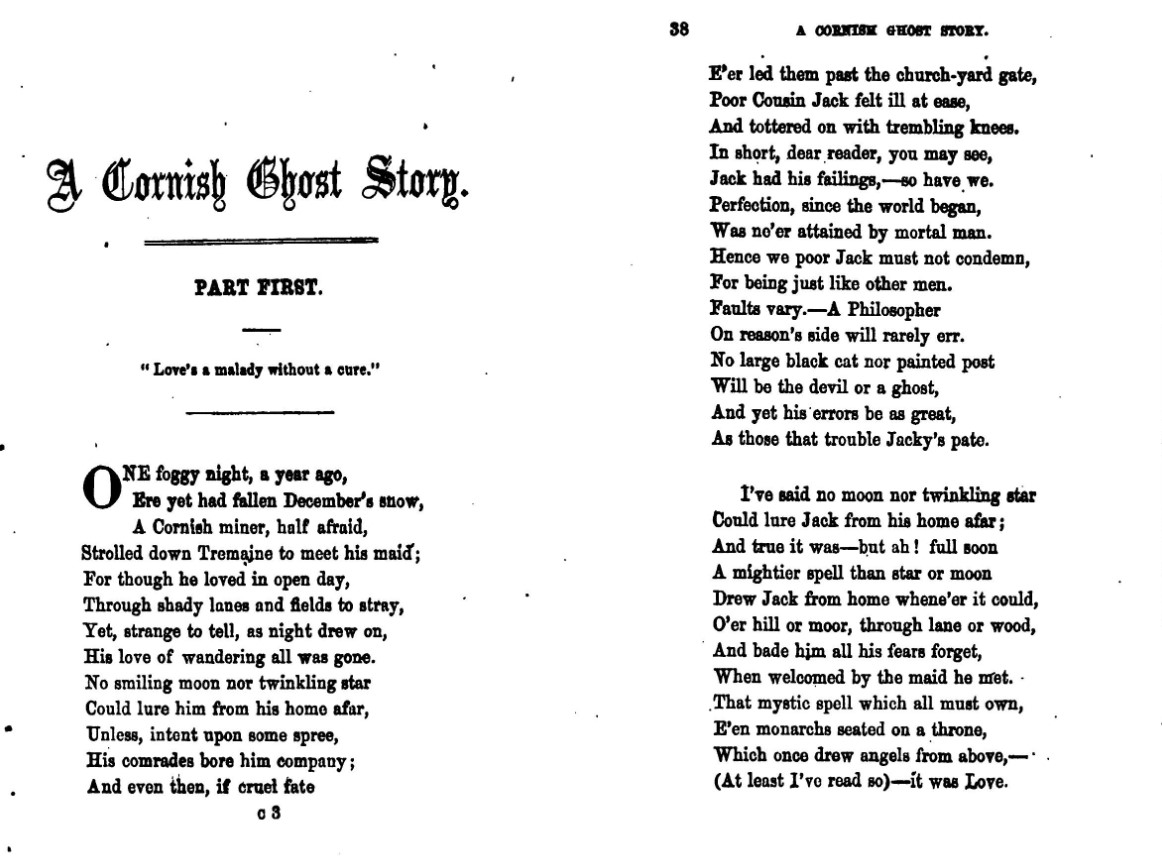

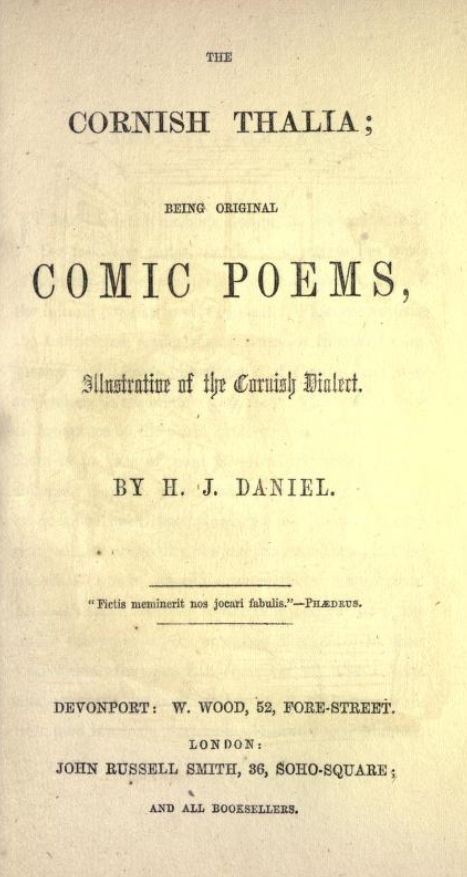

![E.g. Cousin Jack is confused by a bar of soap & basin of water, taking it for broth+potatoes:'I lapp'd it in a moment like a cat…I dedden mind for spoons, or sives [=herbs], or bread;I liked your brath oncommon well I ded…[but] I cudden bear the tetties[=soap], no my dear!' E.g. Cousin Jack is confused by a bar of soap & basin of water, taking it for broth+potatoes:'I lapp'd it in a moment like a cat…I dedden mind for spoons, or sives [=herbs], or bread;I liked your brath oncommon well I ded…[but] I cudden bear the tetties[=soap], no my dear!'](https://pbs.twimg.com/media/EsgkE3XXAAAcTbM.jpg)


